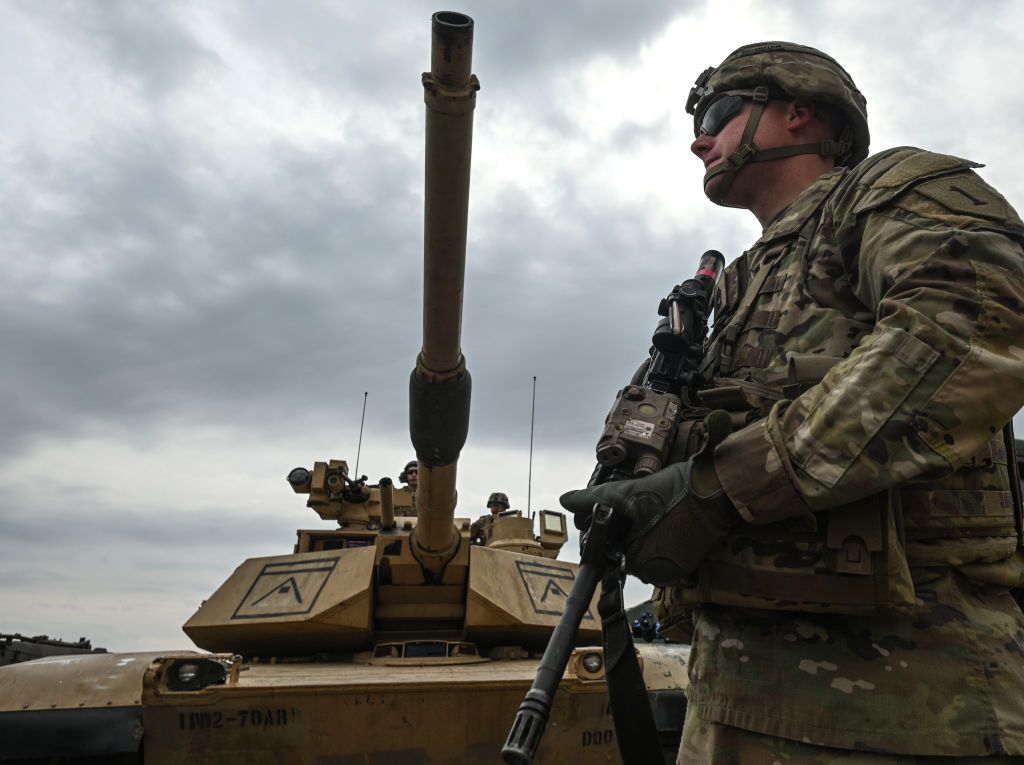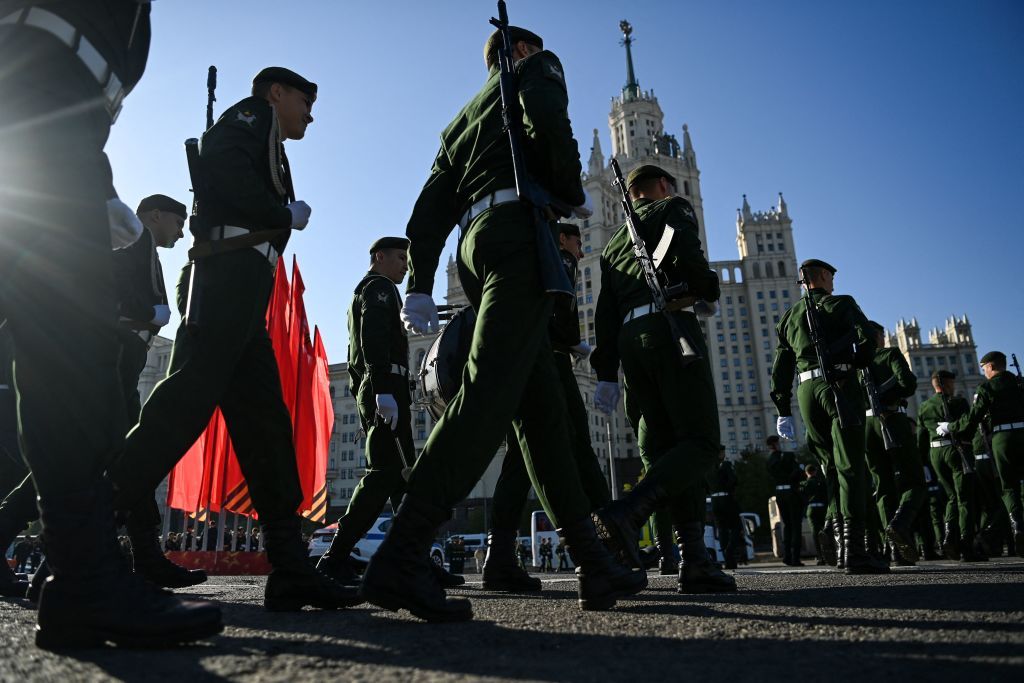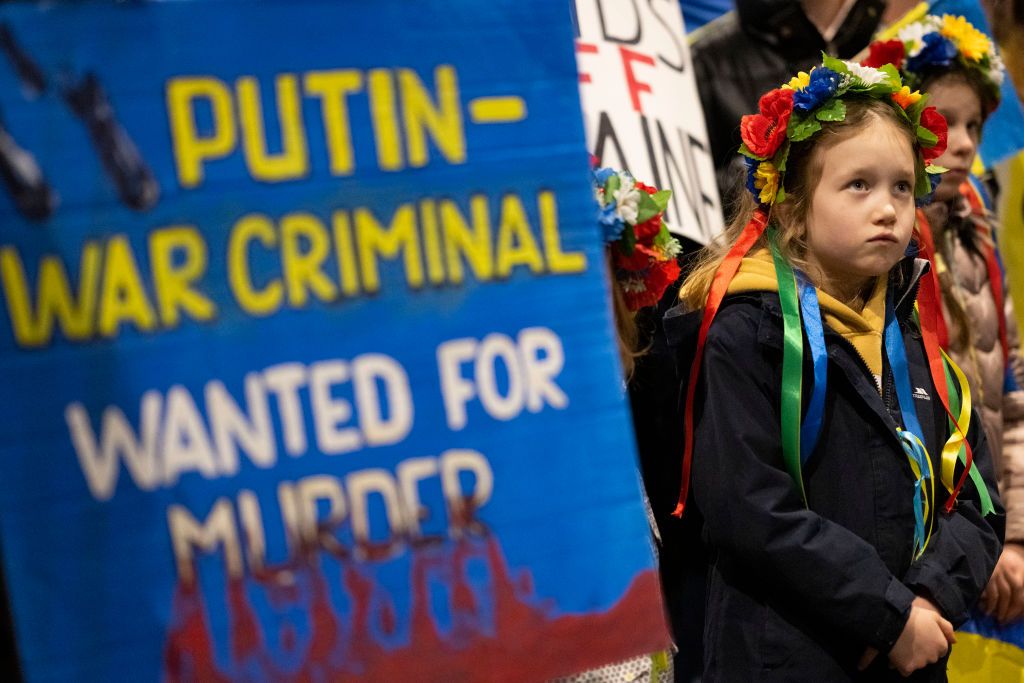Zakhar Tropin: Russia as a state sponsor of terrorism – a legal perspective

Editor’s Note: The opinions expressed in the op-ed section are those of the authors and do not purport to reflect the views of the Kyiv Independent.
Not long ago, the Joint Investigation Team (JIT) dealing with the shooting down of Malaysia Airlines Flight 17 (MH17) said intercepted phone conversations indicated that Russian President Vladimir Putin personally ordered the use of a Buk missile system to take down the aircraft. Back in 2014, the downing claimed the lives of all 298 passengers and crew on board.
Essentially, this means that Russia’s highest official was involved in committing an act of terrorism. Straight thereafter, Putin gave the international community yet another slap in the face, granting the brigade that shot down MH17 the honorary status of “Guards” for “mass heroism and valor, endurance, and courage.”
The world continues to watch how Russia erodes the rules-based order. The time has finally come to take decisive steps and call things by their names: Russia is a state sponsor of terrorism.
In the legal prosecution of terrorism, international practice suggests two types of responsibility: that of the individual and that of the state. While terrorism is usually associated with individuals and fanatic groups, states can also be sponsors of terrorism (take Libya under the dictatorship of Muammar Gaddafi, for example).
In Russia’s case, the prosecution of individuals is covered by the JIT. It earlier found three people guilty of shooting down MH17 and sentenced them to life imprisonment.
On Feb. 8, however, the JIT announced that it had postponed the investigation because it had exhausted all possible means of deriving evidence of the participation of other individuals. Despite the recordings that prove Putin’s involvement and co-responsibility in the crime, he cannot be brought to justice due to the jurisdictional immunity of those currently in office.
Individual-level criminal prosecution being in a deadlock leaves only one way to bring justice, which is to shift the focus to the responsibility of Russia as a terrorist state. This approach becomes particularly important as the MH17 tragedy is only one episode in a broader pattern of terrorist activity carried out by Russia internationally.
While the MH17 case alone involves four states – Ukraine, the Netherlands, Malaysia, and Australia – multiple other countries have suffered from Russia’s terrorist activities on their national soil over the past decades. Take the U.K., for example, and Russia’s poisoning of Sergei and Yulia Skripal, as well as of Alexander Litvinenko. Another high-profile poisoning case is that of Alexei Navalny.
The terrorist activities of the Russian private military company Wagner Group, which operates in Ukraine and states like Syria, Libya, the Central African Republic, Mali, Sudan, Mozambique, and Burkina Faso, are hard to overlook.
The murder and persecution of those who oppose the Kadyrov dictatorship in Chechnya have occurred in Austria, Qatar, the United Arab Emirates, Türkiye, France, Germany, and Sweden, among other countries.
This list is by no means exhaustive.

Yet, there are not many states that have officially declared Russia a state sponsor of terrorism. Countries’ hesitation has both legal and political grounds: such recognition would oblige states to discontinue any relations with Russia and to chase its officials with every possible means. It’s no wonder such prospects are scary for many Western officials hoping to go back to “business as usual” with Russia or to hold some doors open for future diplomatic negotiations.
Under these circumstances, there is only one way to overcome these political precautions: to the international legal track and go via the UN’s International Court of Justice (ICJ).
Russia is currently a respondent in the ICJ’s Ukraine v. Russian Federation case concerning the violation of the Convention on the Suppression of the Financing of Terrorism. In this case, Ukraine is suing Russia for financing terrorist acts in eastern Ukraine, particularly the downing of MH17.
The ICJ can resolve these mentioned international hesitations because its decisions are legally binding only for parties to the dispute, i.e., Ukraine and Russia. Other states are free to opt out from recognizing Russia as a state sponsor of terrorism and its legal implications.
Yet in its judgment on Nov. 8, 2019, the ICJ indirectly stated that Ukraine needs to strengthen its argumentation in the case. The inclusion of other states, as well as their evidence confirming Russia’s sponsorship of terrorism in their respective territories, would significantly boost Ukraine’s case and forward a class action against Russia at the international level – International Community v. Russian Federation.
A similar class action is already being considered by the ICJ – 33 states joined Ukraine in the case against the Russian Federation concerning allegations of genocide under the Convention on the Prevention and Punishment of the Crime of Genocide.
The best option for the involvement of third parties would be for them to enter as an “amicus curiae,” or “friend of the court.” This means that a state that is not a party to the procedure can provide evidence and considerations without being bound to the granted judgment or having access to case-related documents. Through this legal mechanism, a third party can strengthen Ukraine’s case while remaining independent in its future courses of action with Russia.
It is only fair and just that decades-long Kremlin-sponsored terrorism across the globe finds an adequate international response. The time has finally come to collectively punish Russia’s terrorist behavior, especially given the realistic legal mechanism in place via the ICJ.
Unlike many other UN proceedings related to international security where Russia enjoys a veto right, the current ICJ case can bring about justice. To achieve this, countries that have suffered from Russia’s terrorist activities, coupled with those that care about a safe tomorrow, need only one thing: courage.













